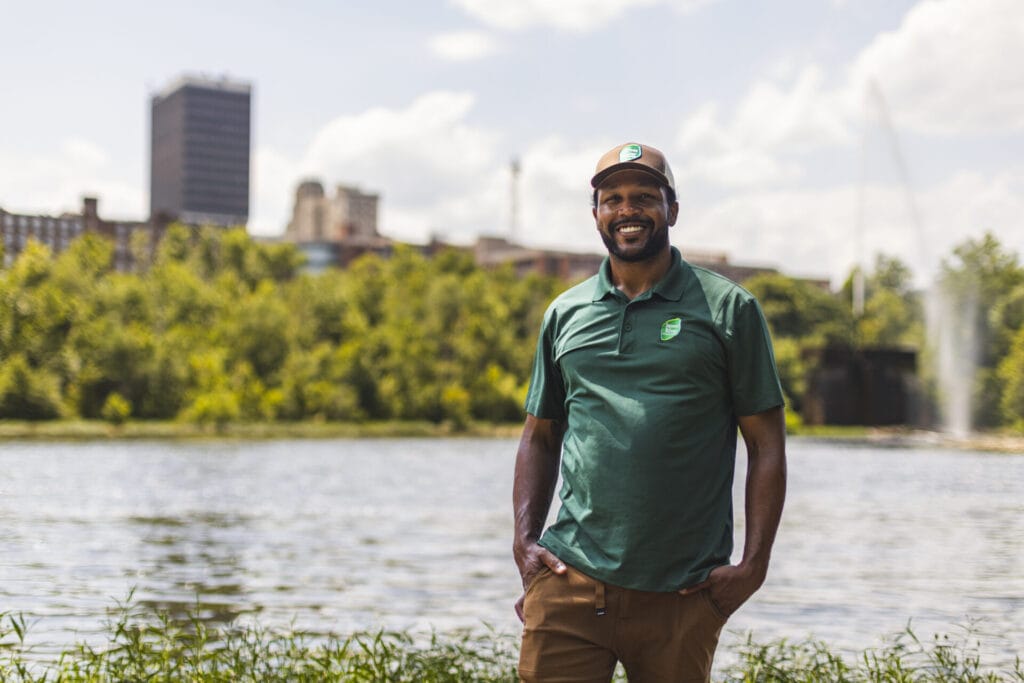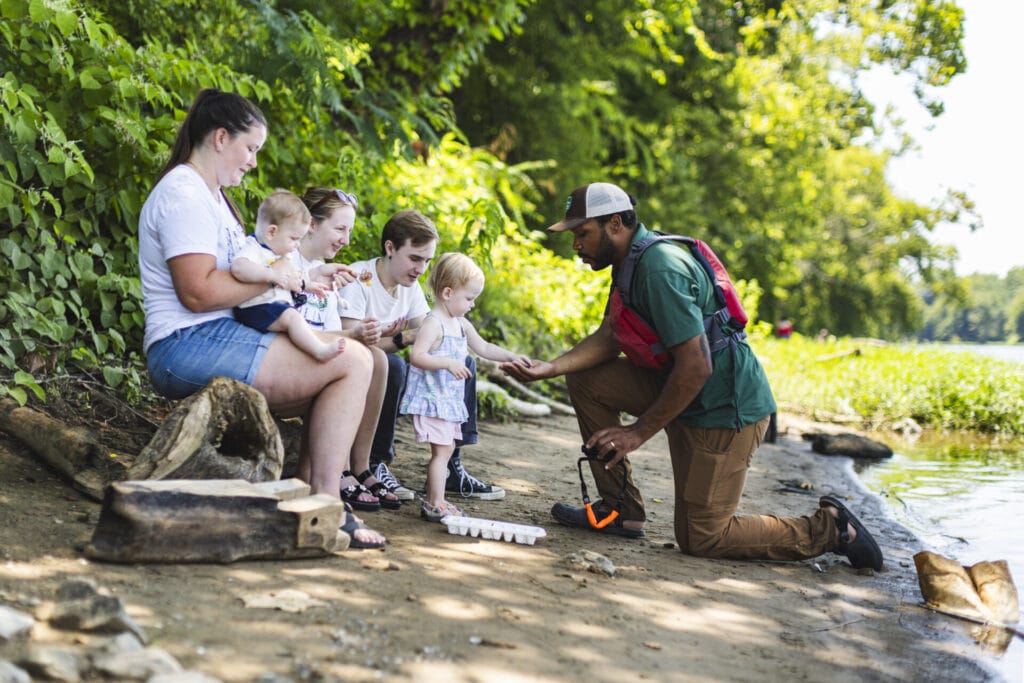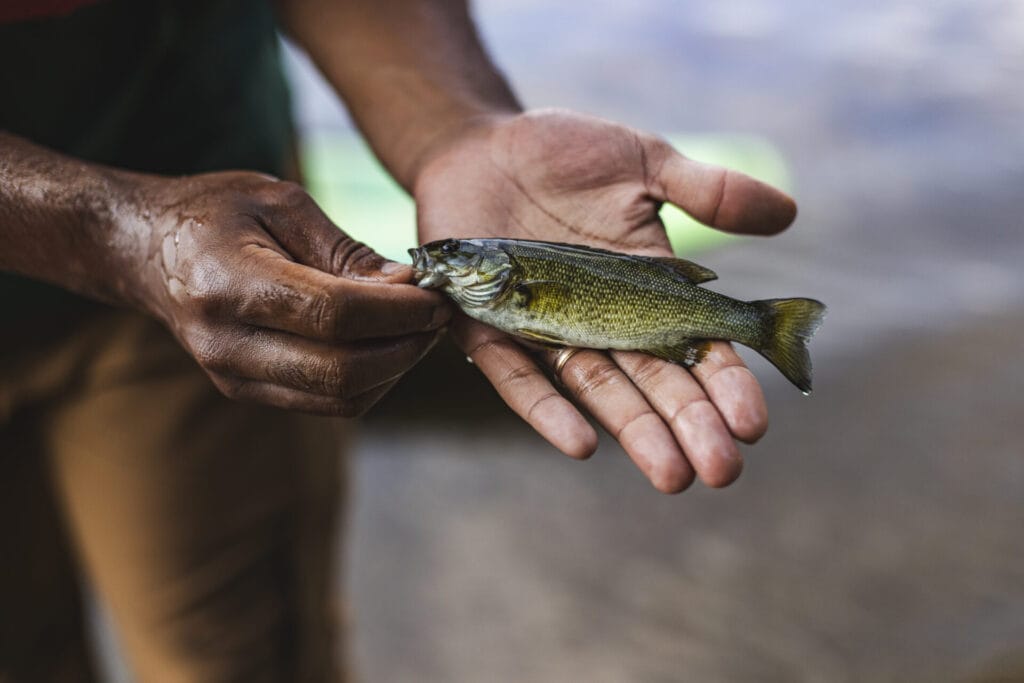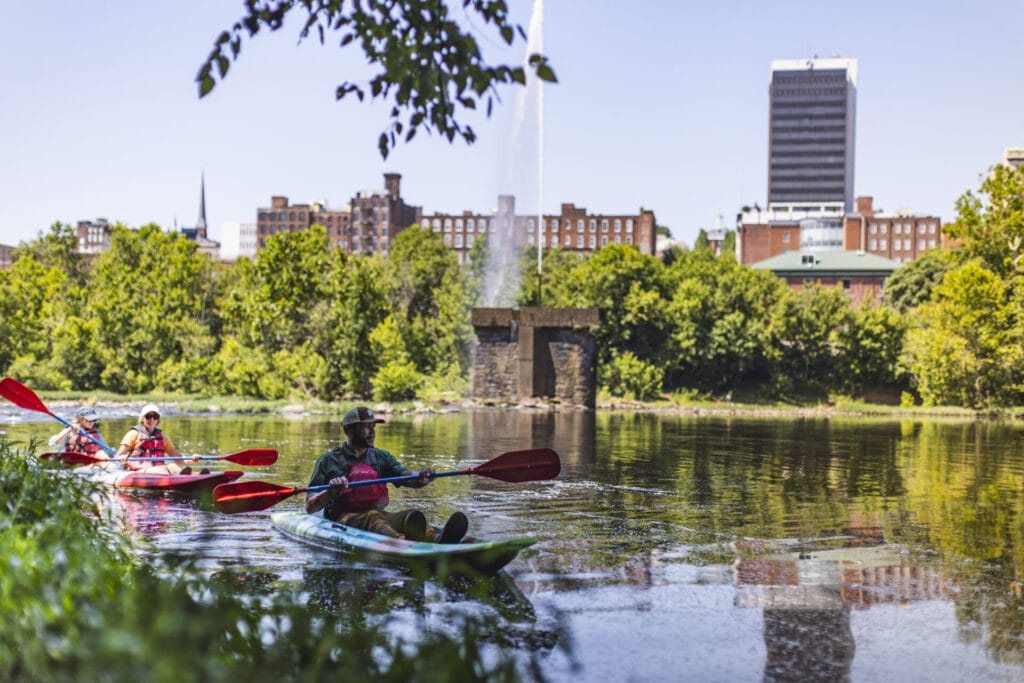Lessons by the James
By Robin Sutton Anders

It’s a busy morning for Charles Johnson, who’s preparing for an interview with a local Virginia Public Radio producer about their Stories by the James podcast. The series shares accounts of people connected by the James River — Central Virginia’s main water source — and Johnson is the perfect guest.
As the upper education manager for the James River Association, it’s Johnson’s job to integrate kindergarten through 12th-grade science standards in hands-on lessons about the river. As graduate assistant for the University of Lynchburg’s Office of Equity and Inclusion, he wants the James to be equally accessible to everyone.
Johnson embraces each role with gusto; his love for the river fuels his passion. “We’re all connected to the James,” he says.
One of the longest rivers in the country that begins and ends in the same state, Virginia’s James River begins its mountainous descent in Botetourt County before flowing through 39 counties and 19 cities and towns — including the riverfront Lynchburg. The James’ 10,000-square-mile watershed is home to about a third of all Virginians — and when they look up, they might spot a Bald eagle, as the James is host to the bird’s largest roosting area on the eastern seaboard.

The river’s broad impact is one of the main points Johnson conveys to students during field experiences to its banks. Using equipment like digital thermometers and pH meters, students work in pairs to facilitate tests for water temperature and pH. “It’s not like they’re watching me do it,” says Johnson. “They’re learning the chemical reactions, how tests work, what scales are.”
To learn about the river’s invertebrates, students collect insects that start their lives in the river—dragonflies, mayflies, stoneflies, all in their larval phases. “Then they look at a dichotomous key to figure out what they’re looking at,” he says. “Once they do the water quality assessment, it makes sense to them which organisms they will find. They understand that if they’re finding Dobson flies and mayflies, those are indicators of good water quality.”
After a day on the water, Johnson and his students unpack what they learned. “What is an everyday choice you can make to leave our watershed a positive place?” he often asks. Johnson wants them to connect the dots between their actions and their water usage: the water they drink, or the water that fills their backyard pool.
Their responses span from “take shorter showers” to “pick up after my dog.” Johnson loves all their responses, but one response fills him with hope. “When they say, ‘I can educate,’ I know my work here is done. That means they’re taking what we’re teaching them back to their moms and dads, brothers and sisters and friends. That’s how I can change the world.”
Through his work with the University of Lynchburg, Johnson strives to make the James accessible so that all of Lynchburg’s residents feel welcome there. “Historically, if you look at user groups for the James, it’s been predominantly white,” he says. “My job is to make all people feel comfortable in outdoor areas. We have to be intentional about that.”

Johnson knows how restorative time spent bass fishing on the James is for him. He and his wife regularly take their 19-month-old son to the George Washington Jefferson national forest. They also like to camp at Crabtree Falls in the Tye River, a tributary of the James. “Every time I go camping, it’s like an enlightenment happens,” he says. “I can be more productive when I come back to society.”
Johnson believes those mental and physical benefits are especially important for people who don’t always have access to nature. “Historically marginalized communities groups need help in the mental health realm, and we know that the river’s mental health benefits are tremendous in relieving stress from everyday life,” he says. “Why not provide that to everyone? It’s in our backyards, so why not make it inclusive?”
To that end, the James River Association chartered a Diversity, Equity and Inclusion task force in 2019. “It’s a long haul, and not something we can do overnight,” says Johnson. They started by diversifying their board and staff.

JRA hosts four weeks of summer camp, and the Lynchburg City Schools Education Foundation, Inc. sponsors Lynchburg Public School System students to attend free of cost. Campers have the opportunity to kayak, canoe, paddleboard, and fish. “We provide lessons on proper fishing techniques and teach about fish anatomy,” says Johnson.
“My work at the university is a perfect segue because I can work with the next generation,” he says. These students are going into entry-level jobs, but they’ll be managers one day. “If we can make changes now, we won’t experience the same barriers 20 years down the road.”
Johnson can’t help but think about how his son will be impacted by his work. “I want him to have all the opportunities I’ve had to make meaningful change in the world, as well as to be welcomed and to feel comfortable in all settings. I hope he can find something that fills his cup like education and science fills mine.”
To learn more about Charles and the James River Association, listen to the Virginia Outdoors Adventures Podcast.
